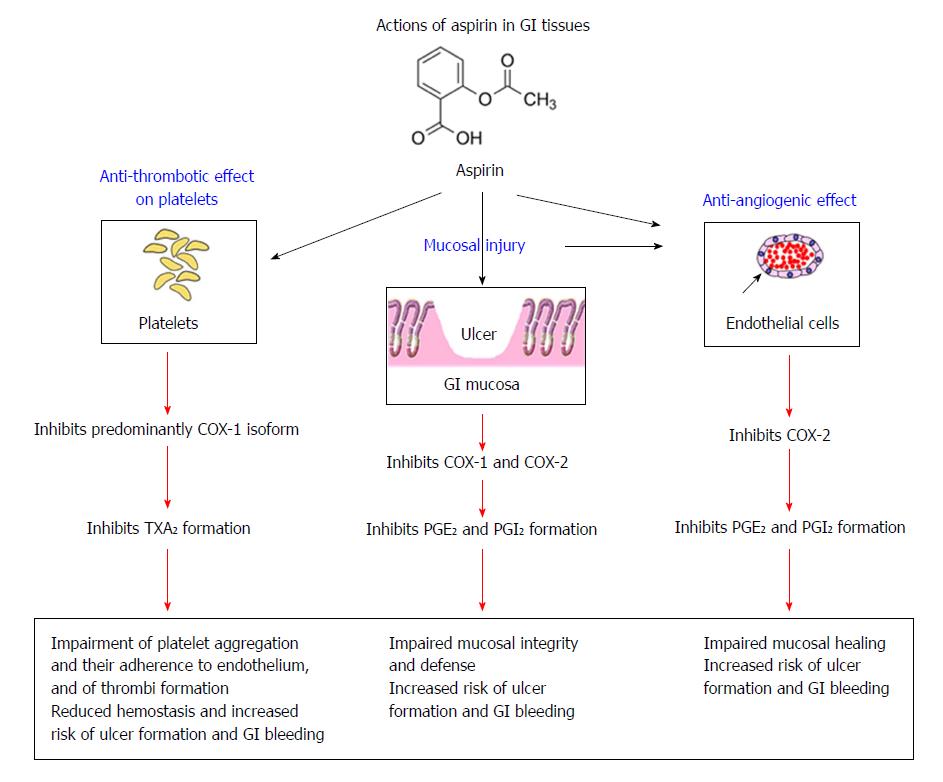©The Author(s) 2018.
World J Gastroenterol. Nov 14, 2018; 24(42): 4721-4727
Published online Nov 14, 2018. doi: 10.3748/wjg.v24.i42.4721
Published online Nov 14, 2018. doi: 10.3748/wjg.v24.i42.4721
Figure 1 Actions of aspirin in gastrointestinal tissues.
Aspirin low dose has an anti-thrombotic effect on platelets - it mainly inhibits cyclooxygenase (COX)-1 enzyme resulting in inhibition of thromboxane A2 formation, and impairment of platelet aggregation and their adherence to endothelium, and of thrombi formation. Aspirin induced impaired thrombi formation reduces hemostasis and therefore, increases the risk of gastrointestinal (GI) ulcers and bleeding. Aspirin increases GI mucosal injury and has an anti-angiogenic effect since it inhibits COX-1 and COX-2 enzymes in the GI mucosa and in endothelial cells resulting in the reduction of the cytoprotective prostaglandin E2 and prostacyclin. This causes impaired mucosal integrity and defense, thus increasing the risk of GI ulcers and bleeding and impaired mucosal healing. GI: Gastrointestinal; COX: Cyclooxygenase; TXA2: Thromboxane A2; PGE2: Prostaglandin E2; PGI2: Prostacyclin.
- Citation: Tarnawski AS, Ahluwalia A. Increased susceptibility of aging gastric mucosa to injury and delayed healing: Clinical implications. World J Gastroenterol 2018; 24(42): 4721-4727
- URL: https://www.wjgnet.com/1007-9327/full/v24/i42/4721.htm
- DOI: https://dx.doi.org/10.3748/wjg.v24.i42.4721













